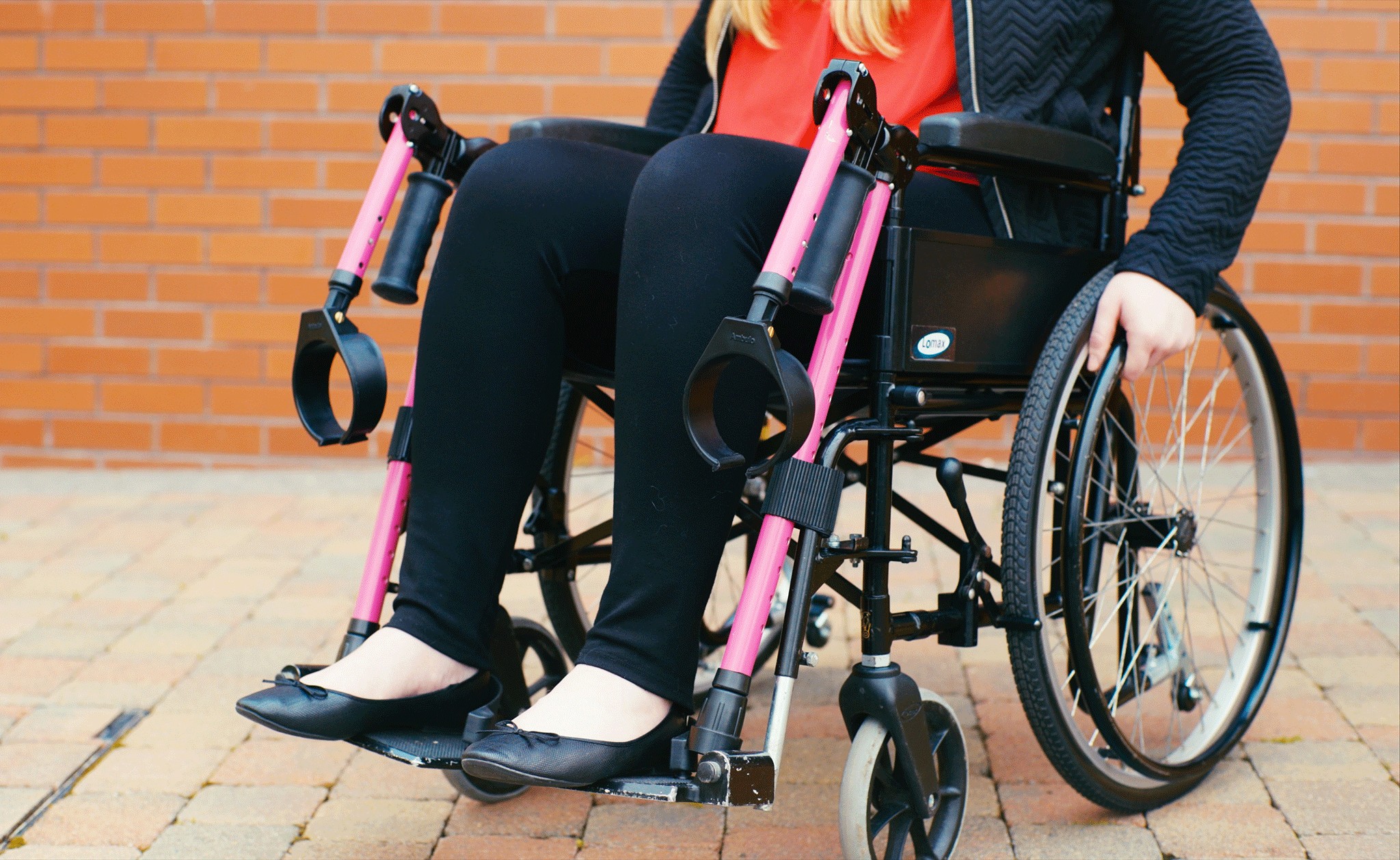
To make persons with disabilities useful and self-reliant citizens, they need to be empowered through education, rehabilitation and skill training

In the earlier ages, the Greeks used to kill disabled children as they were considered a burden on society since they were not in a position to contribute socially and economically. In the present times the same act was repeated by Adolf Hitler through practicing Euthanasia (the painless killing of a patient suffering from an incurable and painful disease or in an irreversible coma). Hitler, during Second World War killed hundreds and thousands of disabled persons applying Euthanasia on them, that he thought a liability on government.
This destructive attitude has totally been changed now. It has been acknowledged today that persons with disabilities can contribute lot for themselves and the society at large when empowered with education, rehabilitation and moral support. Acknowledging this fact, each year the Day for Persons with Disabilities (PWDs) is observed on December 3 by the United Nations to promote an understanding of disability issues and mobilise support for the dignity, rights and wellbeing of persons with disabilities.
It also seeks to increase awareness of gains to be derived from the integration of persons with disabilities in every aspect of political, social, economic and cultural life. The theme for this year’s IDPD is "Empowering persons with disabilities and ensuring inclusiveness and equality".
An estimated one billion people living with disabilities worldwide face many barriers to inclusion in many key aspects of society. The Millennium Development Goals (MDGs) also focused on persons with disabilities. Efforts to achieve the MDGs and implement the UN Conventions and Declarations are interdependent and mutually reinforcing distinct care of special persons. Article 23 of Convention on the Rights of Child emphasises on states parties to recognise that a mentally or physically disabled child should enjoy a full and decent life, ensuring dignity, promoting self-reliance and facilitating children’s active participation in the community.
The population of persons with disability across Pakistan has been registered to be less than 0.48 per cent of the total population as per the recent 6th Population and Housing Census 2017. Yet like other development and demographic statistics, there may be a question of its authenticity as Pakistan Bureau of Statistics (PBS) indicates that the decision to separately count the disabled population was taken very late which could have affected the headcount.
The National Plan of Action for Persons with Disabilities-2006 includes early intervention, assessment and medical treatment, education and training, vocational training, employment and rehabilitation, research and development, advocacy and mass awareness, sport and recreation, barrier-free buildings, parks and public places for special children. This plan could be attained if a transparent data is available on persons with disabilities.
In a traditional society like Pakistan where education level is low and the pace of economic development has not taken off, the disabilities of household members are concealed, especially those acquired at or soon after birth. Physical deformities and mental ailments are perceived as a disgrace due to which the ‘family name’ is considered at stake. The family’s own fear lies in the social discrimination at the hands of other people justifying cover-up of facts or existences of handicapped births. These persons are mostly confined to the four-wall of home.
A recent initiative of Inclusive Education System is a hope to enable special persons empowering them and ensuring inclusiveness and equality. This system is about how we develop and design our schools and classrooms’ activities so that all students learn and participate together irrespective of ability or disability. Since they sit, study, play and participate in other recreational activities with normal students, this allows them to develop individual strengths and assistances. This reflects high and appropriate expectations for each special child. It also involves their parents in the activities of their local schools. The handicapped children could have an opportunity to make friendships with a wide variety of other children that inspires both, their school and community.
On the other hand, this also creates community awareness about needs of Inclusive Education for PWDs and role of community to play suitably. However, the obstacles to this system include parents’ denial to allow their children sitting with special children. Further, teachers and faculty of educational institutions are not yet enlightened and trained to practice this system.
It is interesting to note that no healthy person could even think of playing cricket sitting in the wheelchair but the special persons have proved it possible. There are many persons with disabilities who earned good name in sports and games. Of course several people with disabilities have earned name worldwide as scientists, actors, celebrities, singers, world leaders and sport persons.
Albert Einstein had a learning disability and could not speak until age three. Alexander Graham Bell had a learning disability. Thomas Edison could not read till he was twelve. Walt Disney had a learning disability. Gordon Brown, the former prime minister of the UK, is also visually impaired. Master Sadiq was a born blind -- he was a great piano-player of Pakistan. Mussarat Piracha, an eminent educationist, a popular novelist and a playwright, got all her achievements sitting in her wheel-chair.
It is a great tragedy that persons with disabilities are almost four times more likely to experience violence than without disabilities. They are also deprived of transport facilities, availability of friendly utensils including spoons, forks, plates or mugs and washrooms at public places.
To make persons with disabilities a useful and self-reliant citizen, they need to be empowered through imparting education, rehabilitation and skill training to be able to support themselves and contribute for the community. The foremost issue is to give them special respect and admiration, as they are special persons. This provides them encouragement to live like a normal person and to be treated indiscriminately. The Inclusive Education System and Assistive Technology Program are required to be introduced in our education systems and governments’ rehabilitation programmes for PWDs.